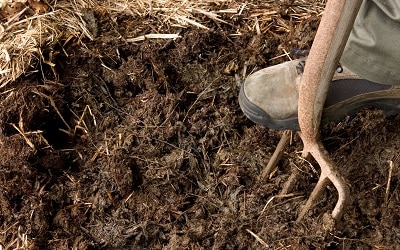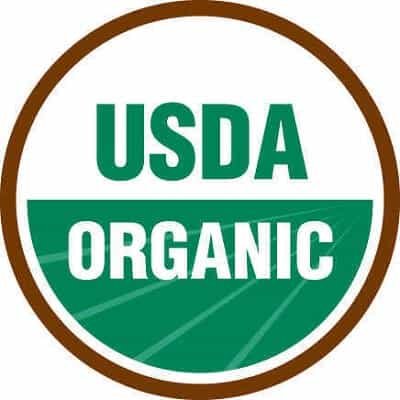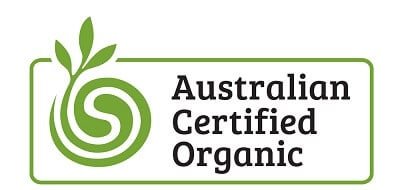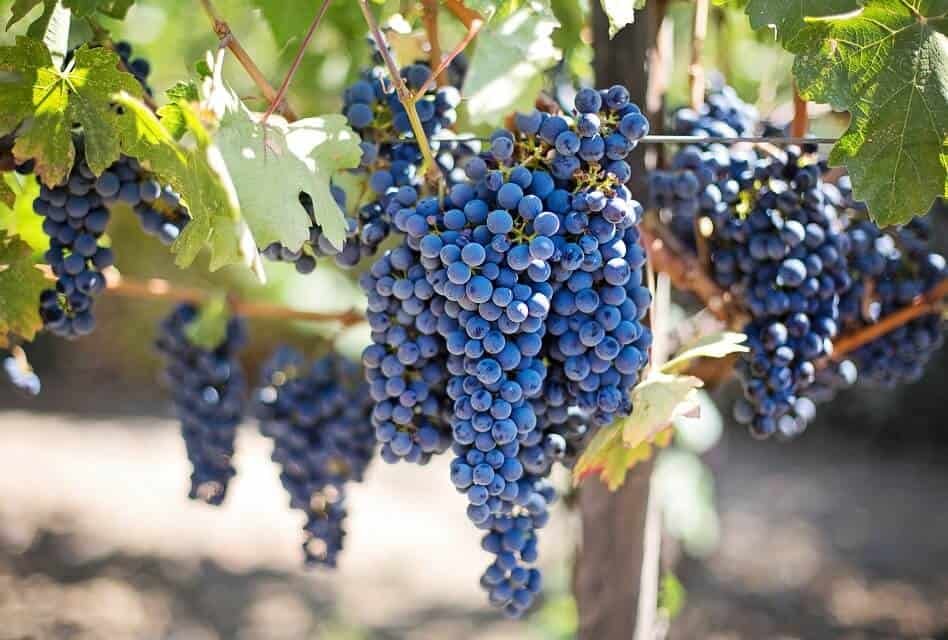Healthy eating and sustainability have become essential for more and more people these days. Consumers demand products that are free of artificial and potentially harmful additives and made in an eco-friendly way. This trend has been going on for groceries for a long time. And more and more wine lovers also demand organic wine. But what makes a wine organic?
Organic wine is made from organically farmed grapes. That means that vintners waive chemical plant-protecting agents and fertilizers. They also do not use synthetic additives such as sulfites or colorants during the winemaking process.
The specific requirements for calling wine organic vary from country to country, though. And besides organic wines, there are many other types that vintners produce based on “green”, sustainable, or otherwise eco-friendly techniques and principles. In this article, we will discuss these wines and compare them.
WHAT MAKES WINE ORGANIC?
The United States Department of Agriculture (USDA) created specific guidelines that all farmers must follow if they want to label their products “organic”. The official document consists of multiple pages of guidelines.
Winemakers have to respect some additional rules. The following paragraphs summarize the key points.
No Chemical Plant Protecting Agents
Most conventional farmers use chemical agents to protect their vines. In fact, wine grapes are one of the crops that receive the highest application of these chemicals. The most common types are:
- Pesticides protect plants against harmful insects or viruses that can cause diseases.
- Herbicides eliminate weeds and parasitic plants.
- Fungicides kill fungi and prevent their spores from spreading.
All of these agents can have adverse effects on human health, and they can also affect the environment and wildlife. Thus, they are prohibited from organic farming. Instead, organic vintners follow biological approaches to keep their vines healthy. For example, they cultivate specific plants nearby to attract bugs that feed pests but are harmless to the vines.
Ecological Fertilizers
Fertilizers are substances that deliver additional nutrients to the vines and contribute to faster growth and better yields. In conventional farming, especially in industrial agriculture, farmers use many different chemical fertilizers. Some are made from petroleum products, others from minerals.
The continuing use of chemical fertilizers can harm microorganisms and deplete the soil of natural nutrients. They can also leach into the groundwater and pollute it. To avoid these unwanted side effects, organic vintners abstain from chemical fertilizers. Instead, they use animal manures and composted plant materials to increase the level of nutrients and keep their soil healthy in the long term.

Limited Additives and Sulfites
Besides organically grown grapes, all other additives that vintners use must be organic, too. For instance, they can only use yeast for fermentation that is not genetically modified.
Another additive that many people worry about is sulfite. Sulfites occur naturally in wine during the fermentation process. And they are useful because they protect wine from oxidation and harmful bacteria. So they help keep it fresh even when stored for a long time. Without them, aging wine would be almost impossible. For that reason, many conventional vintners increase the level of sulfite in their wines artificially.
However, some people suffer from stomach pain, headaches, or other health problems when consuming sulfites. Thus, organic winemaking rules limit the amount of sulfite significantly. They allow only 10 milligrams (mg) of natural sulfites per liter of wine and prohibit adding sulfites. That’s much less than the permitted amount in conventional wines that may contain up to 350 mg, including added sulfites.
Sustainable Land Management
Organic farming guidelines mandate land rotation. That means that farmers can farm only portions of their land, but not all of it simultaneously. Some plots stay empty so the land can recover. Following this practice keeps the soil healthy and prevents it from becoming depleted of nutrients.
Another means to reach that goal is biodiversity. In contrast to monocultural farming, which focuses on only one type of crop, organic farmers grow different plants next to each other. Of course, it’s a little different for winemakers. Vines are perennial plants, and in many cases, their age is a deciding factor for the quality of the grapes they produce. Thus, vintners cannot replace them. Nevertheless, crop rotation is actionable to some degree by cultivating (and rotating) other crops next to the vineyard.
THE HISTORY OF ORGANIC WINEMAKING
Since farmers started using chemicals in the nineteenth century, many people have tried to raise awareness of their negative impacts. But it took until the 1960s to launch the organic movement that followed a chemical-free approach.
Organic winemaking became a thing one decade later, but its start was rough. Conventional winemakers felt threatened by the new competitors and attacked their claims of making better and healthier wines heavily. Some even paid for studies that allegedly proved these promises wrong.
Organic vintners also faced resistance from retailers. As their wines contained no sulfites, they were more prone to spoilage, and many retailers did not want to take this risk. This fear was fueled by early organic wines that went off and received terrible reviews. As a result, consumers regarded organic wines as low quality. And they were reluctant to pay premium prices that are usual for other organic products like vegetables. That made organic winemaking a financially challenging business.
Another problem was the lack of common standards. Lawmakers in both the U.S. and the European Union took until the 2010s to provide legislation. Interestingly American authorities took another approach than the Europeans: They prohibited the addition of sulfites in organic wines, while E.U. regulators allowed it.
At the same time, customer behavior changed. More and more people started to request healthy and sustainably made products. And retailers, as well as restaurateurs, reacted by adding organic wines to their shelves and menus.
Today, organic wine is a rapidly growing market segment. It has a global volume of about 11 billion USD, and researchers believe that it will increase to more than 30 billion USD by 2030.
WHICH WINES ARE MADE ACCORDING TO ORGANIC PRACTICES?
Organic winemaking isn’t limited to specific types of wines, varietals, or countries. So basically, any wine can be organic.
As of 2016, about 4% of American vineyards were organic. In Europe, the ratio was about twice as high: 8.5% of vineyards in the European Union met the requirements to get organic certification.
The best way to find an organic wine is to look out for the organic label issued by the Department of Agriculture (or similar labels in other countries).
ORGANIC WINE CERTIFICATION BY THE USDA
Organic farms in the United States can get a certification from the Department of Agriculture after an extensive review
The process includes assessing the farm buildings, fields, machines and tools, seeds, crop rotation schedules, sales records, and other details. Usually, the USDA appoints 3rd party organizations to do the certification process.
Like the producers of other alcoholic beverages, vintners must meet some additional requirements by the Alcohol, Tobacco Tax, and Trade Bureau (TBB).

Wines Made from Organically Grown Grapes
Some wines are not labeled as “organic” but as “made with organic grapes” (or “made with organically made grapes”).
This label tells you that the vintners grew the grapes according to organic principles. So, for instance, they did not use any chemical herbicides or pesticides.

The European Union Organic Label
In the European Union, the requirements to receive an organic label are less strict than in the United States. For instance, vintners may add sulfites to their wines and nevertheless get a certification. The amount is limited but varies for different types of wine. Dry reds can contain a maximum of 100 mg per liter, and dry whites up to 150 mg. Sweeter wines may have even more sulfites.
Besides, the rules are comparable and cover the prohibition of non-organic additives and chemical plant protection agents, biological fertilizers, and crop rotation.
The Australian Certified Organic Label
Australia also has a set of rules that affect the labeling of organic wines.
Like in the United States and the European Union, one of these rules regulates sulfites’ addition. Australian organic vintners can add sulfites to the same extent European winemakers may: up to 100 mg per liter if they make red wine and 150 mg for white wines.

IS ORGANIC WINE VEGAN?
It may be surprising to many wine lovers, but organic wine is not necessarily vegan wine (and the same goes for regular wine). While the grapes, of course, are vegan, some of the additives that vintners use are animal products. The primary purpose of these additives is to filter out sediments from the wine. They include:
- Isinglass (fish protein)
- Albumin (egg whites)
- Casein (cow milk protein)
- Gelatin (protein from the skins and bones of cattle and pork)
- Chitin (from crustacean shells)
Wine (regular and organic) is only completely vegan if vintners forego the filtration and refining process. Alternatively, they can replace animal products with vegan materials such as:
- Charcoal
- Silica gel
- Limestone
- Bentonite clay
- Kaolin clay
IS ORGANIC WINE FREE OF SULFITES?
Actually, no wine is entirely free of sulfites. During the fermentation process of wine, sulfites are produced as a by-product, and vintners can’t prevent that. So each wine contains at least a bit of sulfite, even if the winemaker follows organic principles. However, it is less than in traditionally produced wines that often contain added sulfites.
IS ORGANIC WINE THE SAME AS NATURAL WINE?
Organic and natural are not the same.
“Natural” is not a protected term or label. So there is no set of laws that mandates the use of specific production methods or ingredients. Nevertheless, some winemakers commit themselves to practices that you can best describe as low-intervention winemaking.
Organic winemaking practices are the basis for making natural, low-intervention wine. But the guidelines for natural wine are much stricter and go far beyond these practices. For example, in organic winemaking, vintners may use some additives such as organic yeast or refining agents. In natural winemaking, neither of these is okay.
In sum, it is fair to say that all-natural wines are organic, but not all organic wines are natural.
IS ORGANIC WINE THE SAME AS BIODYNAMIC WINE?
Organic wines and biodynamic wines are not the same. The two concepts have some similarities, though. For instance, they both prohibit chemical pesticides and promote sustainable farming methods.
But biodynamic winemaking goes beyond organic farming. It promotes methods that are rooted in astrology and spirituality, including a special biodynamic calendar and specific composting techniques.
Similar to natural wine, you can summarize biodynamic wine like that: All biodynamic wine is organic, but not all organic wine is biodynamic.
IS ORGANIC WINE THE SAME AS SUSTAINABLE WINE?
Organic wine is not the same as sustainable wine.
Sustainable winemaking has a strong focus on environment-friendly work. It is about preventing waste by composting and recycling, using renewable energy sources, conserving water, reducing emissions, and keeping nature healthy. But it also has vital social aspects. Sustainably working vintners take care of their employees and maintain good relationships with their neighbors.
Of course, this focus implies sustainable winemaking is based on sustainably created ingredients. Nevertheless, the role of ingredients isn’t as big as in organic winemaking.
DOES ORGANIC WINE TASTE BETTER THAN REGULAR WINE?
Whether organic wine tastes better than regular wine still is a controversially discussed topic. One of the latest contributions to the discussion was a study by UCLA researchers from 2016. Based on the reviews and scores of leading wine experts, they concluded that organic wines actually do taste better.
But experts are humans like you and me, and so their opinions are subjective and based on personal preferences. In the end, there is no definitive answer to the question. If organic wine is better or worse than regular wine depends on each individual’s taste.
IS ORGANIC WINE BETTER FOR YOU?
Regardless of taste, many wine lovers consider organic wine better for different reasons:
Health reasons: More and more people avoid exposing themselves to chemicals in food products. Grapes for organic wines are made without using chemical plant protection agents. And during the production process, vintners add no chemical ingredients to the wines. Thus, they contribute to a healthier lifestyle.
Safer for people suffering from allergies: Allergies to sulfites are not unusual. And even people who aren’t allergic might experience adverse health effects. Although organic wines are not entirely free of sulfites, they are a safer alternative to conventional wines for all of these people.
Supporting safe workplaces: Of course, chemicals are an even bigger danger to workers who get in touch with them every day. In organic vineyards, that is not a problem. As chemicals do not play a role in the production process, these vineyards are a much safer workplace. So by buying organic wine, you support the safety of vineyard workers.
Protecting the environment: Waiving pesticides and other chemicals, crop rotation, and other organic practices help preserve nature. If you are concerned about our planet’s health, you can support it by choosing organic wines instead of traditional wines.
ORGANIC WINES SHOPPING TIPS
Producing organic wines is significantly more expensive for vintners than making conventional wines. Thus, you should expect higher prices, too. Usually, a bottle of organic wine is more expensive than a bottle of regular wine. So expect to pay about 25% more.
FINAL WORDS
Buying organic wine is a great way to do something for your health and for the environment at the same time. By doing so, you support ecological farming, keeping soils healthy, and protecting workers’ health. That is absolutely worth paying a premium, right?
Recent Posts
Switzerland is famous not only for its beautiful landscapes and its picturesque towns but also for some food items. Especially Swiss cheese and chocolate are world-famous. But do you actually know a...
Winemaking is a sophisticated process that includes multiple steps and can take several years. Depending on the desired wine and the vintner's preferred techniques, these steps can differ. However,...

